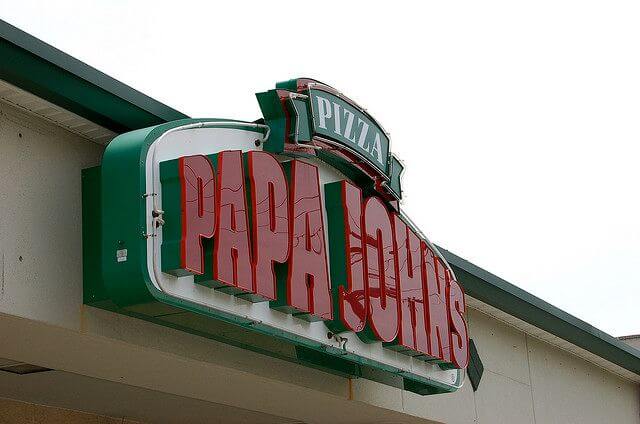Papa John’s: Taxing the Pizza Man’s Delivery Services
- Jun 2, 2014 | Gail Cole

Update 8.25.2015: Papa John’s is still in court fighting allegations that it illegally charged Florida and Illinois sales tax on delivery charges. The Illinois class action suit is making its way through the U.S. District Court for the Southern District of Illinois (case number 3:14-cv-00618), where the judge recently refused to remand it to state court. A deal to settle the Florida case was temporarily reached in federal court in February and the case has been remanded to state court to finalize the deal (case number 8:14-cv-01218 in the U.S. District Court for the Middle District of Florida).
“The Pizza Man! The Pizza Man!” That’s how my children have always greeted pizza deliverers. To be honest, that’s how I always feel, too. We’re ready for the Pizza Man when he arrives, and my gratitude for the joy he carries with him has always eclipsed any other thoughts I might have, such as whether or not sales tax has been charged on those delivery charges.
Not so, everyone. It turns out that some people pay close attention to whether or not sales tax is charged on their pizza delivery charges. And some folks don’t like what they see. As a result, Papa John’s Pizza may soon find itself in court.
Serving pizza lovers in Illinois and Florida
Class action lawsuits against Papa John’s have been filed in both Illinois and Florida. Plaintiff Zachary Tucker claims he was incorrectly charged sales tax on separately stated pizza delivery charges and that “a seller may not legally charge sales tax on a separate charge for delivery where the cost of delivering the merchandise is equal to or exceeds the delivery.”
Laws in both Illinois and Florida have been violated, according to the plaintiff, who is suing on behalf of other “customers who have been charged sales tax on delivery fees.”
TaxAnalysts reports that on May 22, 2014, Papa Johns filed a notice of removal to the United States District Court of the Middle District of Florida, arguing that the alleged overcharges greatly exceed $5 million.
Other targets
A similar suit was brought against Target, accused of charging sales tax reimbursement on exempt to-go coffee drinks. In its opinion on the matter, the California Supreme Court said California food tax law is “of amazing complexity.” The court determined that the case should have been brought to the California State Board of Equalization, the entity responsible for determining such taxability issues.
Walmart was sued for incorrectly charging Pennsylvania sales tax on buy one, get one free items. Sears and Quiktrip have been sued over sales tax. And retailers of take-n-bake pizza in many states have been embroiled in a controversy over the tax status of their product.
Class action lawsuits have been called obnoxious. But obnoxious or not, businesses must defend themselves against them.
Businesses as tax collectors
Businesses collect and remit sales tax in the 45 states with sales tax (plus D.C.), and they pass the charge for sales through to customers. Unless they’re involved in tax fraud, businesses don’t keep the sales tax revenue they collect. This should be remembered.
As the California Supreme Court noted, sales tax laws are exceedingly complex. Complying with them isn’t easy. There are Papa John’s Pizza Store franchises in all 50 states and the District of Columbia—that’s a lot of sales tax laws to track.
An automated sales tax solution makes complying with multiple state tax laws manageable. Learn how it works.
photo credit: taberandrew via photopin cc

